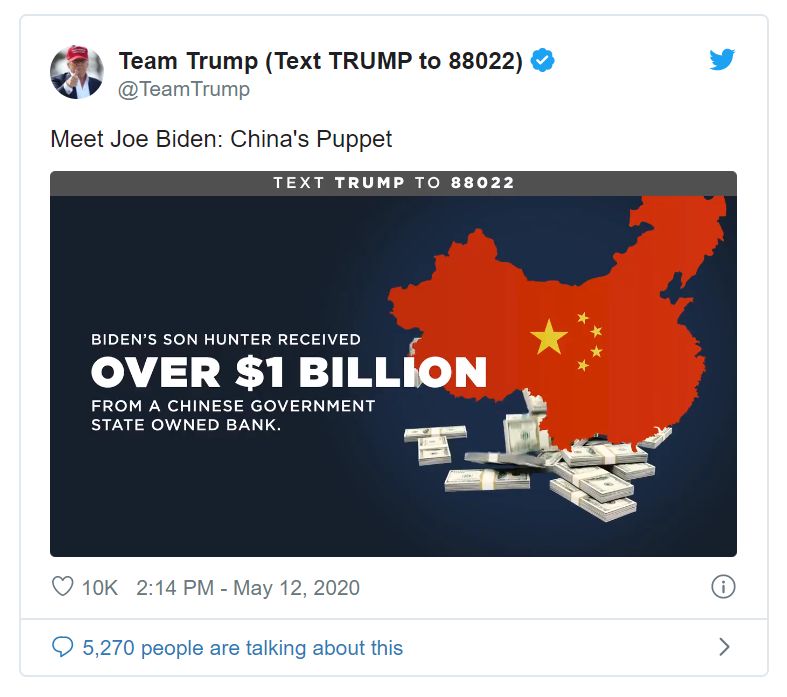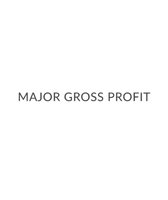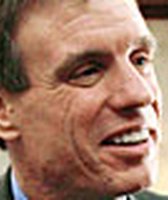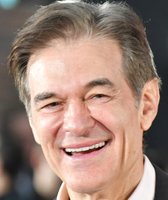Stand up for the facts!
Our only agenda is to publish the truth so you can be an informed participant in democracy.
We need your help.
I would like to contribute
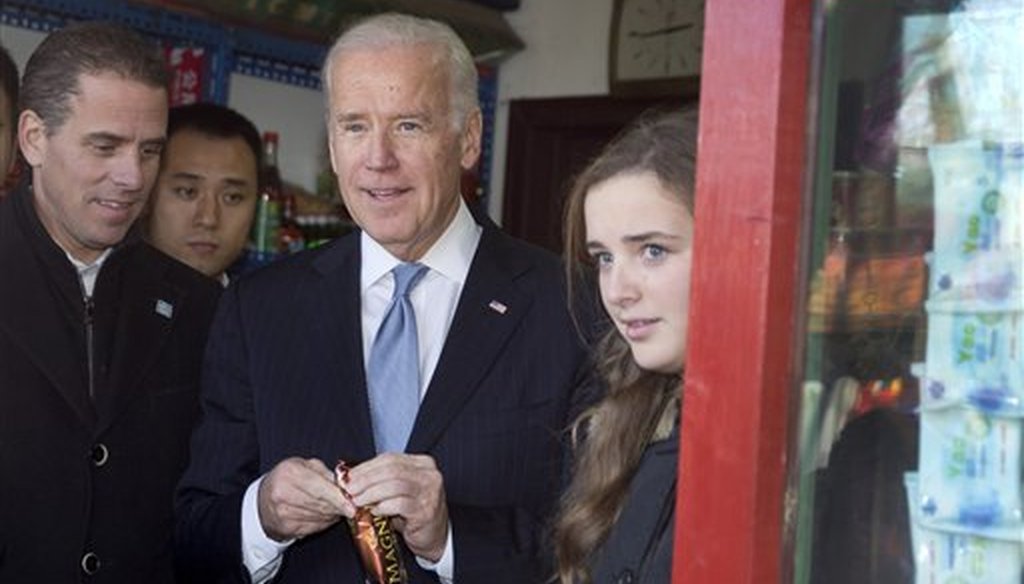
Then-Vice President Joe Biden buys an ice-cream at a shop in Beijing with his granddaughter Finnegan Biden, right, and son Hunter Biden, left, on Dec. 5, 2013. (AP)
If Your Time is short
• Hunter Biden, son of former Vice President Joe Biden, had an investment deal that involved the Bank of China, but Trump’s $1.5 billion figure may be exaggerated. How much it’s exaggerated is unclear, given lack of disclosures.
• We found no evidence that either of the Bidens broke any laws, but experts in political ethics say that the elder Biden would have been better served if his son had never gotten involved with an investment entity linked to China.
• Experts say it’s not unusual for the Chinese government and state-affiliated businesses to court prominent Americans or their family members. Ivanka Trump, for example, was granted potentially lucrative trademark protections by the Chinese government while she was serving as a White House official.
In recent weeks, President Donald Trump and his allies have ratcheted up attacks against Democratic presidential nominee Joe Biden. One line of attack isn’t new: a Chinese business deal involving Biden’s son Hunter. Trump is giving it additional weight amid his criticism of China for its early handling of the coronavirus.
In an interview with Fox Business’ Maria Bartiromo, Trump accused previous administrations of being soft on China.
"Worst of all was the last eight years under President Obama and Biden, where his son gets a billion and a half dollars, and then they're supposed to be tough on China. Doesn't work that way," Trump said.
Trump went on to cite a conversation with Stephen A. Schwarzman, a billionaire investor, Republican donor and informal adviser to the president. "I asked him, I said, ‘Steve, is something like that possible?’ He said it's impossible. You can't get that money. He said this guy had no experience. He didn't even have a job. And he walked out of China with $1.5 billion to invest for them, of which he makes hundreds of thousands — and actually millions — of dollars. What is this?"
Trump’s campaign added in a May 12 tweet that "Biden's son Hunter received over $1 billion from a Chinese government state owned bank," calling the elder Biden "China’s puppet."
We delved into Hunter Biden’s business deal in China last fall, around the time it became a talking point for Trump. We found that Hunter Biden did in fact have an investment deal that involved the Bank of China, but that Trump’s $1.5 billion figure was likely exaggerated.
However, much about Hunter Biden’s arrangement was, and remains, murky, given minimal disclosure requirements for cross-border investments. Complicating matters, Trump and his allies have consistently thrown around the $1.5 billion number, but have sometimes glossed over what that sum actually represents. It’s unclear what personal income Biden is earning from the arrangement.
We decided to take another look at the arrangement to see if it had become any clearer, and to try to get some more context from experts about how unusual the deal was in the universe of Chinese investments.
We sent our previous article to the Trump campaign, the Biden campaign and George Mesires, a lawyer for Hunter Biden, but none provided any additional information. We also looked into additional financial documents about the company and talked to experts on foreign business dealings.
Overall, we found no indication that the younger Biden did anything illegal. Other relatives of politicians, both Democrats and Republicans, have had dealings with Chinese business.
How and when did Hunter Biden get involved in China?
During Joe Biden’s tenure as vice president, a group of investment and consulting firms run by Hunter Biden and partner Devon Archer "pursued business with international entities that had a stake in American foreign-policy decisions, sometimes in countries where connections implied political influence and protection," the New York Times reported. One of the opportunities Hunter Biden found was in China.
Generally speaking, international investment firms seek to make money by buying stakes in companies, hoping to profit from their operations, their eventual sale or both. The firms that have ties to the Chinese government "have some independence from the government and Communist Party, but only some," said Marc Blecher, professor of politics and East Asian studies at Oberlin College. "They have to keep them informed and onside."
While such firms will benefit private investors, Blecher said, "they also have to help the jurisdiction in which they operate generate economic growth, which is crucial for the government officials there."
The China chapter of Hunter Biden’s life was chronicled by Peter Schweizer, a conservative author, in his 2019 book, "Secret Empires: How the American Political Class Hides Corruption and Enriches Family and Friends."
Schweizer also wrote the book "Clinton Cash: The Untold Story of How and Why Foreign Governments and Businesses Helped Make Bill and Hillary Rich," which received some poor ratings from PolitiFact.
"In 2013, then-Vice President Biden and his son Hunter flew aboard Air Force Two to China," Schweizer wrote in a summary of his findings on FoxNews.com. "Ten days later, Hunter Biden’s firm scored a $1.5 billion deal with a subsidiary of the Chinese government’s Bank of China."
The book says that Archer and the younger Biden teamed up with the Thornton Group, an investment advisory firm, to pursue business in China. After the Bidens left China, Schweizer wrote, Rosemont Seneca, one of Hunter Biden’s firms, and the Bank of China created an investment fund called Bohai Harvest RST, or BHR.
The fund was involved in deals spanning a mixture of private enterprise and state-owned enterprise, Schweizer quoted the firm’s CEO, Jonathan Li, as saying.
The fund still has a website that describes BHR as "the cross-border investment arm of Bohai Industrial Investment Fund." Established in the Shanghai Free Trade Zone in December 2013, BHR is "approved by the State Council" and "combines the resources and platforms of China’s largest financial institutions (including Bank of China, China Development Bank Capital, Harvest Fund, Postal Savings Bank of China, China Life and the National Council of Social Security Fund) and the networks and know-how of our U.S.-based investment fund and advisory firm shareholders."
What was Hunter Biden’s role?
Mesires, the lawyer for Hunter Biden, did not deny that Hunter Biden had business in China.
The framework for BHR, an investment management company, "began to take shape at least as early as June 2013," he told PolitiFact during an interview last year.
However, Mesires disputed multiple aspects of Schweizer’s account. His assertions could not be independently verified, since the enterprise is private.
For starters, Mesires told the Washington Post last year that Hunter Biden was on the board of an advisory firm and did not directly invest at first, instead advising those who did.
Mesires told PolitiFact last year that Hunter Biden was an unpaid board member until October 2017, at which point he did take a financial stake in BHR.
"In October 2017, after his father left government service, Hunter acquired a 10% interest in BHR," Mesires said. As of October 2019, he added, "Hunter’s capital commitment for such interest is approximately $420,000." This account tracks with what was uncovered in a lengthy New Yorker profile of Hunter Biden.
Moreover, to date, Hunter Biden "has not received any return of capital or compensation on account of his investment or his position on the board of directors," Mesires told PolitiFact last year.
We were unable to clarify whether Biden remains an investor or director with BHR.
A Bloomberg company profile for BHR continued to list Li as CEO and director as of May 2020. Biden’s name is not included in the profile, either as an executive or a board member.
How large was the value of the Bank of China deal?
A July 2014 Wall Street Journal article about BHR reported that the firm "started fundraising in the second quarter" and was "aiming to raise about $1.5 billion" to invest in foreign companies. This means that, a full six months after Hunter Biden left China, the $1.5 billion figure was aspirational, not confirmed. This undermines Trump’s version of events, which is that Hunter Biden quickly was given access to $1.5 billion in investment capital after a meeting while his father was vice president.
Mesires said that the $1.5 billion amount was never reached. The investment fund raised about $4.2 million "from various sources," Mesires said last year, without citing further detail.
But solid information on the fund’s money flows is hard to pin down. Information from financial databases and trade publications shows a few large deals that the fund has been involved in since 2014.
In September 2014, or 10 months after Hunter Biden’s trip to China, a deal was announced for BHR to invest 6 billion Chinese yuan, or about $1 billion at the prevailing exchange rate, in Sinopec Marketing Co. Ltd, a subsidiary of a state-controlled oil and gas company. The BHR investment, finalized in March 2015, was one of several simultaneous investments by various entities that added up to nearly a 30% stake in the firm.
This illustrates that between its state-owned backers and the funds it raised, BHR had about $1 billion to spend within a year after Biden’s trip.
BHR’s other two major deals also involved Chinese state-owned industrial giants.
In September 2015, BHR paid $600 million to buy 49% of auto supplier Henniges Automotive Inc., with the state-owned AVIC Automotive Systems Holding Co., reportedly acquiring 51%.
And in April 2017, BHR paid $1.2 billion for 24% of Democratic Republic of Congo-based Tenke Fungurume Mining. Much of the rest of the company is owned by China Molybdenum Co., a private holding company with "state-owned capital participation." (BHR later said it had agreed to sell its share for $1.1. billion — a modest loss — to China Molybdenum, but that deal fell through in June 2019.)
So where did the capital to make these investments by BHR come from? In 2019, the Wall Street Journal, citing business registrations, reported that BHR was 80%-controlled by Chinese entities. Biden, the Journal reported, holds a 10% stake.
What do we know about Hunter Biden’s 2013 China trip?
The New Yorker profile quotes a Beijing-based BHR official who said Hunter Biden arranged a quick meeting in the lobby of the American delegation’s hotel in Beijing between Vice President Biden and Li, the BHR CEO. This was followed by a "social meeting" between Hunter Biden and Li, the New Yorker reported.
Mesires said the meeting with Joe Biden was not a business meeting. He told PolitiFact that Hunter Biden did not conduct any business on the trip to China with his father. "He traveled to China to accompany his daughter, the vice president’s granddaughter, who could not travel unattended for the trip with her grandfather." Mesires said last year.
In fact, Mesires said, "the formation documents for BHR were submitted to the relevant Chinese authorities for filing and registration in November 2013," which was before the trip began. "Hunter was not a signatory to the formation documents, because he did not acquire an equity interest until October 2017."
BHR’s licensing process had "started well before then," Mesires said.
In his book, Schweizer acknowledges that little is known about Hunter Biden’s time in China on his father’s trip, aside from a few photo-ops.
"Where Hunter Biden spent the rest of his time on the trip remains largely a mystery," Schweizer writes. "There are actually more reports of his daughter Finnegan’s activities than his."
How unusual was Biden’s arrangement?
A wide range of China experts told PolitiFact that it’s not unusual for the Chinese government and businesses linked to the state to court prominent Americans or their family members.
The Biden arrangement appears to be a "normal deal that I expect from Chinese businessmen," said Zhiguo He, a finance professor at the University of Chicago’s Booth School of Business.
"This is a standard operating procedure," agreed Barry Naughton, the chair of Chinese international affairs at the University of California-San Diego. "Bring in an influential person, give him a small percentage of a firm as a ‘finders fee,’ and grow the business."
For instance, Neil Bush, the younger brother of then-President George W. Bush, testified in a March 2003 divorce proceeding about a $2 million stock deal with Grace Semiconductor Manufacturing Corp., a firm backed by the son of former Chinese President Jiang Zemin.
HNA Group, a Chinese conglomerate, offered to buy a hedge fund owned by former White House official Anthony Scaramucci; retained the legal services of Gary Locke, the former U.S. ambassador to China, shortly before his confirmation; and provided financing to a private-equity firm backed by Jeb Bush, according to a 2019 account in the Intercept.
The Bank of China added Angela Chao, the sister of Transportation Secretary Elaine Chao and sister-in-law of Senate Majority Leader Mitch McConnell, R-Ky., to its board of directors, the Intercept reported.
In the meantime, critics have pointed to possible conflicts of interest for Trump and his own family, including the granting of Chinese trademarks to his daughter Ivanka, who owned a fashion line.
Both the Biden and Trump instances involved a child of a powerful U.S. official getting special treatment or business opportunities from the Chinese government, but there are some differences. On one hand, Ivanka Trump’s trademark approval involved an expedited regulatory review, as opposed to an ongoing investment opportunity. On the other hand, unlike Biden, she was actually a White House official at the time, in addition to being the president’s daughter. And the president himself maintains extensive business interests around the world.
Were Hunter Biden’s actions ethical under the circumstances?
Experts said that neither of the Bidens appears to have done anything illegal. But experts in foreign policy and ethics said Hunter Biden was unwise to have put his father in an awkward position.
"It is apparent to me that Hunter Biden did not do anything illegal in China, but it would have been much better for Joe Biden’s political fortunes if Hunter Biden had not been involved in either Ukraine or China," said Lincoln A. Mitchell, an adjunct research scholar at Columbia University’s Arnold A. Saltzman Institute of War and Peace Studies. "In countries like Ukraine and China, regardless of what Hunter Biden might think or say, people want to do business with him almost entirely because of who his father is."
Yoshiko Herrera, a University of Wisconsin professor who previously headed the university’s Center for Russia, East Europe and Central Asia, agreed.
"It would have been more prudent to avoid the perception of a conflict of interest," she said, adding that if Hunter Biden "is providing some specific value to these companies other than the possibility of access to his father, it would be helpful to know exactly what that was, or is."
Naughton agreed. "It is certainly a bad thing that our political system allows deals like this, and a bad thing that Hunter Biden takes advantage of them, but they are allowed," Naughton said.
PolitiFact contributor Caryn Baird provided research for this report.
Our Sources
Donald Trump, interview with Fox Business’ Maria Bartiromo, May 14, 2020
Donald Trump, tweet, May 12, 2020
PolitiFact, "Donald Trump's accusations about Hunter Biden and a payout from China: A closer look," Oct. 2, 2020
Peter Schweizer, "Secret Empires: How the American Political Class Hides Corruption and Enriches Family and Friends," 2019
Peter Schweizer, "Peter Schweizer: Biden Ukraine dealings – 7 essential facts," Sept. 25, 2019
Washington Post, "Trump says Hunter Biden ‘walks out of China with $1.5 billion.’ Biden’s lawyer said that’s not true," Sept. 25, 2019
New Yorker, "Will Hunter Biden Jeopardize His Father’s Campaign?" July 1, 2019
Washington Post Fact Checker, "Trump’s false claims about Hunter Biden’s China dealings," Sept. 26, 2019
Washington Post Fact Checker, "Fact-checking President Trump’s wild jabs at Joe Biden," May 23, 2019
New York Times, "Ivanka Trump Wins China Trademarks, Then Her Father Vows to Save ZTE," May 28, 2018
Wall Street Journal, "Bohai, Harvest and U.S. Investment Firms Expand Target for Outbound Fund," July 10, 2014
BHR, website, accessed May 21, 2020
Bloomberg, company profile for the Bohai Harvest RST Shanghai Equity Investment Fund Management Co. Ltd., accessed May 21, 2020
S&P Capital IQ database, BHR Equity Investment Fund Management Company Corporate Timeline, accessed May 21, 2020
Sinopec Marketing Company Ltd., website, accessed May 21, 2020
Sinopec Corp, website, accessed May 21, 2020
State-owned Assets Supervision and Administration Commission, website, accessed May 21, 2020
China Molybdenum Co., website, accessed May 22, 2020
Henninges Automotive, "Henniges Automotive Acquired by AVIC Automotive Systems Holding Co., Ltd. of China," Sept. 9, 2015
Wall Street Journal, "What We Know About Hunter Biden’s Dealings in China," Oct. 4, 2019
The Intercept, "Chinese Fund Backed by Hunter Biden Invested in Technology Used to Surveil Muslims," May 3, 2019
Sydney Morning Herald, "Bush's younger brother quizzed over $2m deal," Nov. 26, 2003
Politico, "Did Elaine Chao’s DOT interviews help her family’s business?" May 6, 2018
Email interview with Lincoln A. Mitchell, adjunct research scholar at Columbia University’s Arnold A. Saltzman Institute of War and Peace Studies, Sept. 26, 2019
Email interview with Yoshiko Herrera, University of Wisconsin professor who previously headed the university’s Center for Russia, East Europe and Central Asia, Sept. 26, 2019
Email interview with George Mesires, lawyer for Hunter Biden, Sept. 27, 2019
Email interview with Marc Blecher, professor of politics and East Asian studies at Oberlin College, May 19, 2020
Email interview with Oded Shenkar, chair in global business management at Ohio State University's Fisher College of Business, May 18, 2020
Email interview with Zhiguo He, finance professor at the University of Chicago’s Booth School of Business,
Email interview with Barry Naughton, chair of Chinese international affairs at the University of California-San Diego, May 18, 2020

